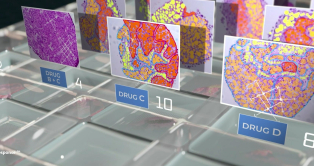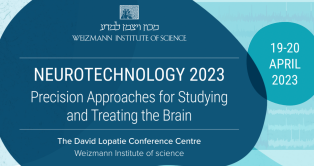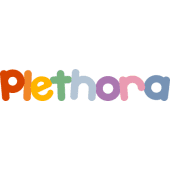
Congratulations to Yeda’s spinoff company, Curesponse!
Israel’s second-largest health service, Clalit Health Services, recently announced that it was including Curesponse’s AI driven technology, cResponse, into its oncology service package.
cResponse is an innovative platform that uniquely assesses how an individual patient's tumor tissue responds to a variety of cancer treatments. Clalit's decision will expand the access of this technology to millions of cancer patients, ultimately supporting the Curesponse mission to make cancer treatment selection truly personal.

Prof. Michal Schwartz, shares her journey of finding a way to cure Alzheimer's
Israel Prize in Life Sciences winner, and Weizmann Institute of Science researcher, Prof. Michal Schwartz, shares her journey of finding a way to cure Alzheimer's in the latest אחד ביום podcast.

Registration for Neurotechnology 2023 is now open!
Register today to secure your spot:
Plethora
Plethora is a groundbreaking computer game, built in collaboration between researchers at the Weizmann Institute, Forex and MindCET. It’s a simple and pleasant entry point into the world of computer science, and helps develop complex problem-solving and computational thinking skills.

Quantum Source
Quantum Source develops the core processing elements for photonic quantum computers. The company is in stealth mode and more information will be revealed in the future.

Quantum Art
Quantum Art Ltd develops quantum computing system solutions, based on trapped ions. It is a spin-off from the Ozeri group at the Weizmann Institute of Science - the only group with a fully working quantum computer in Israel currently, with state of the art performance.


Exciting things are happening in the world of Cardiology
Yeda's spinoff company, UltraSight has announced that it has been granted a patent for real-time guidance of #ultrasound devices.
UltraLight is a #digitalhealth pioneer transforming cardiac imaging through the power of #AI. This technology aims to allow medical professionals with no prior sonography experience to accurately perform #echocardiographic examinations and acquire high quality diagnostic images of the #heart.
Read more:

Congratulations to Prof. Nir London
Congratulations to Prof. Nir London, winner of the Mark Foundation for Cancer 2023 Aspire Award.
The London lab develops and applies computational and experimental methods to design and discover new compounds for applications in chemical biology, drug discovery, and design, with a focus on covalent inhibition and kinase signaling.
Learn more about the London lab:

Yeda announces partnership with eureKARE, to establish EonBio!
Co-founded by eureKARE, an innovative European investment firm dedicated to building disruptive synthetic biology ventures and Yeda, EonBio is based on the groundbreaking research by Prof. Roy Bar-Ziv and his team at the Weizmann Institute of Science.
EonBio’s cutting-edge synthetic cell-free platform has the potential to revolutionize drug discovery, vaccine development, and bioproduction, empowering pharmaceutical companies to take on new challenges in their pursuit of more effective therapies.
For more information:

